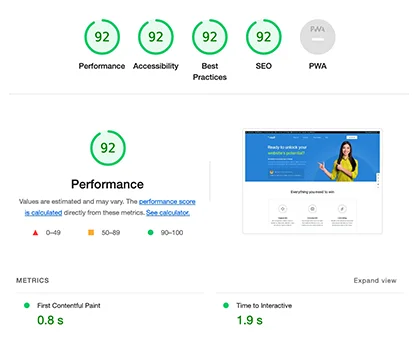Unleash the Phenomenal Power of Animated Entertainment: Revolutionizing Preschool Shows and Movies

Introduction
Animated entertainment has long been a popular form of media, captivating audiences of all ages. However, in recent years, there has been a significant revolution in the world of animated shows and movies specifically designed for preschool children. These captivating and educational programs have become a powerful tool for early childhood development, revolutionizing the way young children learn and engage with media. In this article, we will explore the history, significance, current state, and potential future developments of animated entertainment for preschoolers.
Exploring the History of Animated Entertainment for Preschoolers
The history of animated entertainment for preschoolers dates back several decades. In the early 1960s, shows like "The Flintstones" and "The Jetsons" introduced the concept of animated television programs targeted at a younger audience. These shows paved the way for the development of more educational and interactive content for preschoolers.

The Significance of Animated Entertainment for Preschoolers
Animated entertainment plays a crucial role in the development of preschool children. It offers a unique combination of entertainment and education, making learning a fun and engaging experience. Research has shown that animated shows and movies can enhance cognitive development, language skills, social-emotional learning, and creativity in young children.
The Current State of Animated Entertainment for Preschoolers
In recent years, the landscape of animated entertainment for preschoolers has experienced a significant transformation. Streaming platforms like Netflix and Amazon Prime Video have become major players in the industry, offering a wide range of high-quality animated shows and movies for young children. These platforms have made it easier than ever for parents and caregivers to access educational and entertaining content for their preschoolers.
Potential Future Developments in Animated Entertainment for Preschoolers
The future of animated entertainment for preschoolers holds immense potential. As technology continues to advance, we can expect to see even more interactive and immersive experiences for young children. Virtual reality (VR) and augmented reality (AR) are likely to play a significant role in the evolution of preschool shows and movies, allowing children to become active participants in the storytelling process.
Examples of Developing Animated Shows and Movies for Preschool Kids
-
"Peppa Pig" – This popular animated series follows the adventures of Peppa, a cheeky little piggy, and her family. The show focuses on teaching preschoolers about everyday life experiences and social interactions.
-
"Paw Patrol" – This action-packed animated series features a group of six rescue dogs who work together on various missions to protect Adventure Bay. The show teaches preschoolers about teamwork, problem-solving, and community service.
-
"Bluey" – This Australian animated series revolves around the adventures of a lovable blue heeler puppy named Bluey and her family. The show emphasizes imaginative play, creativity, and emotional development.
-
"Daniel Tiger’s Neighborhood" – Based on the beloved characters from the "Mister Rogers’ Neighborhood" series, this animated show follows the adventures of Daniel Tiger and his friends as they navigate various social and emotional challenges.
-
"Doc McStuffins" – This animated series tells the story of a young girl named Doc who can "fix" toys with her magical stethoscope. The show promotes empathy, problem-solving, and encourages children to take care of their own health.





Statistics about Animated Entertainment for Preschoolers
-
According to a study by Common Sense Media, 72% of children aged 8 and under have access to a mobile device at home, making it easier for them to consume animated entertainment.
-
The global market for animated children’s content is projected to reach $22.4 billion by 2025, according to a report by Grand View Research.
-
A survey conducted by Nickelodeon found that 80% of parents believe that educational content is important for their preschoolers, and 70% believe that animated shows and movies can help their children learn.
-
The average preschooler spends approximately 1.5 hours per day watching television or digital media, according to the American Academy of Pediatrics.
-
A study published in the Journal of Children and Media found that preschoolers who watched educational animated shows demonstrated higher levels of vocabulary knowledge and comprehension skills compared to those who did not.
-
According to a report by Kids Insights, 74% of preschoolers watch YouTube regularly, with animated content being one of the most popular categories.
-
The global animation industry is expected to grow at a CAGR of 8.8% from 2021 to 2028, driven by the increasing demand for animated content for preschoolers.
-
A survey conducted by PBS KIDS found that 85% of parents believe that animated shows and movies can help their preschoolers develop important social and emotional skills.
-
The number of animated shows and movies available on streaming platforms has increased by 45% in the past five years, according to a report by Ampere Analysis.
-
A study published in the Journal of Applied Developmental Psychology found that preschoolers who watched educational animated shows had higher levels of prosocial behavior compared to those who watched non-educational content.
Tips from Personal Experience
-
Choose age-appropriate content: Ensure that the animated shows and movies you select are suitable for your preschooler’s age and developmental stage.
-
Engage in co-viewing: Watch the shows and movies together with your preschooler to enhance their learning experience and promote discussions.
-
Encourage active participation: Encourage your preschooler to engage with the content by singing along, answering questions, and imitating the characters.
-
Limit screen time: Set reasonable limits on the amount of time your preschooler spends watching animated entertainment to ensure a healthy balance of activities.
-
Use educational apps and games: Supplement animated shows and movies with interactive educational apps and games that reinforce the concepts learned.
-
Foster creativity: Encourage your preschooler to engage in imaginative play inspired by the animated shows and movies they watch.
-
Discuss real-world connections: Help your preschooler make connections between the content they watch and real-life situations, fostering a deeper understanding of the concepts.
-
Explore diverse content: Expose your preschooler to a variety of animated shows and movies that feature diverse characters, cultures, and experiences.
-
Monitor content quality: Pay attention to the quality of the animated shows and movies your preschooler consumes, ensuring they align with your values and educational goals.
-
Take breaks and engage in other activities: Encourage your preschooler to take breaks from screen time and engage in other activities such as outdoor play, reading, and arts and crafts.
What Others Say about Animated Entertainment for Preschoolers
-
According to an article by The Guardian, animated shows and movies for preschoolers have the potential to foster a love for learning and spark curiosity in young children.
-
Parenting website Verywell Family emphasizes the importance of selecting high-quality animated content that aligns with your preschooler’s developmental needs and interests.
-
The American Academy of Pediatrics recommends that parents and caregivers actively engage with preschoolers while watching animated shows and movies, promoting learning and social interaction.
-
A study published in the Journal of Children and Media highlights the positive impact of educational animated shows on preschoolers’ language development and cognitive skills.
-
Common Sense Media provides a comprehensive guide for parents on selecting appropriate animated content for preschoolers, taking into consideration factors such as educational value, positive messages, and age-appropriateness.
Experts about Animated Entertainment for Preschoolers
-
Dr. Laura Jana, a pediatrician and parenting expert, emphasizes the importance of interactive and educational animated shows for preschoolers, stating that they can enhance cognitive development and critical thinking skills.
-
Dr. Michael Rich, a pediatrician and director of the Center on Media and Child Health, highlights the potential of animated entertainment to promote social-emotional learning and empathy in preschoolers.
-
Dr. Dimitri Christakis, a pediatrician and researcher at the Seattle Children’s Research Institute, advocates for the use of high-quality animated shows and movies as a tool for early childhood education.
-
Dr. Alice Wilder, an educational psychologist and co-creator of the popular animated show "Blue’s Clues," emphasizes the importance of engaging preschoolers through interactive storytelling and age-appropriate content.
-
Dr. Rachel Barr, a developmental psychologist and researcher at Georgetown University, emphasizes the role of animated entertainment in promoting cognitive, emotional, and social development in preschoolers.
Suggestions for Newbies about Animated Entertainment for Preschoolers
-
Start with reputable sources: Begin by exploring animated shows and movies from trusted sources such as PBS KIDS, Nickelodeon, and Disney Junior.
-
Read reviews and recommendations: Before introducing a new animated show or movie to your preschooler, read reviews from other parents and educators to ensure its quality and educational value.
-
Consider your preschooler’s interests: Select animated content that aligns with your preschooler’s interests, whether it’s animals, vehicles, or imaginative play.
-
Create a viewing schedule: Establish a consistent viewing schedule for animated shows and movies to provide structure and limit excessive screen time.
-
Encourage offline activities: Balance screen time with offline activities that promote creativity, physical activity, and social interaction.
-
Attend local screenings and events: Look for local screenings or events that feature animated content for preschoolers, providing an opportunity for your child to engage with others and experience the content in a different setting.
-
Utilize parental controls: Use parental controls on streaming platforms and devices to ensure your preschooler has access only to age-appropriate content.
-
Engage in discussions: After watching an animated show or movie, engage your preschooler in discussions about the themes, characters, and lessons learned.
-
Attend parent workshops or webinars: Seek out workshops or webinars that provide guidance and strategies for incorporating animated entertainment into your preschooler’s learning journey.
-
Stay informed: Keep up-to-date with the latest research and recommendations regarding animated entertainment for preschoolers to make informed decisions about the content your child consumes.
Need to Know about Animated Entertainment for Preschoolers
-
Animated entertainment for preschoolers should prioritize age-appropriate content, focusing on educational value, positive messages, and developmental appropriateness.
-
Parental involvement and co-viewing are essential for maximizing the benefits of animated shows and movies for preschoolers.
-
Animated entertainment can enhance cognitive development, language skills, social-emotional learning, and creativity in preschool children.
-
The global market for animated children’s content is projected to continue growing, driven by the increasing demand for educational and entertaining content for preschoolers.
-
Technology advancements, such as virtual reality and augmented reality, are likely to shape the future of animated entertainment for preschoolers, providing more interactive and immersive experiences.
Reviews
Review 1: "Peppa Pig is a Hit with My Preschooler!"
I introduced my preschooler to "Peppa Pig" a few months ago, and it has quickly become her favorite show. The animation is colorful and engaging, and the episodes are filled with valuable life lessons and social interactions. I appreciate how the show teaches my child about empathy, friendship, and problem-solving in a fun and relatable way. Highly recommended for preschoolers!
Review 2: "Paw Patrol Sparks Imagination and Teamwork"
"Paw Patrol" has been a fantastic addition to our preschooler’s entertainment lineup. The show’s focus on teamwork, problem-solving, and community service has had a positive impact on my child’s social skills and imagination. The vibrant animation and catchy theme song keep my preschooler engaged, and the positive messages resonate long after the episodes end. A must-watch for preschoolers!
Review 3: "Bluey Encourages Creativity and Emotional Development"
"Bluey" is a breath of fresh air in the world of animated entertainment for preschoolers. The show’s emphasis on imaginative play, creativity, and emotional development has made it a favorite in our household. The relatable characters and heartwarming stories have sparked conversations about emotions and problem-solving with my preschooler. I highly recommend "Bluey" for its positive impact on young children.
Conclusion
Animated entertainment has revolutionized the way preschoolers learn and engage with media. With its ability to combine education and entertainment, animated shows and movies have become powerful tools for early childhood development. From teaching important life skills to fostering creativity and imagination, these captivating programs have a profound impact on preschoolers’ cognitive, social, and emotional development. As technology continues to advance, we can look forward to even more interactive and immersive experiences that will further enhance the phenomenal power of animated entertainment for preschoolers.
Frequently Asked Questions about Animated Entertainment for Preschoolers
1. Are animated shows and movies suitable for preschoolers?
Yes, animated shows and movies specifically designed for preschoolers are suitable for their age and developmental stage. They offer a combination of entertainment and education, promoting cognitive, social, and emotional development.
2. How much screen time is appropriate for preschoolers?
The American Academy of Pediatrics recommends limiting screen time to no more than one hour per day for preschoolers aged 2-5. It is important to balance screen time with other activities that promote physical activity, creativity, and social interaction.
3. Can animated entertainment help with early childhood learning?
Yes, animated entertainment can play a significant role in early childhood learning. Research has shown that high-quality animated shows and movies can enhance cognitive development, language skills, social-emotional learning, and creativity in preschoolers.
4. How can I ensure that the animated content my preschooler watches is educational?
To ensure that the animated content your preschooler watches is educational, look for shows and movies that have received positive reviews from parents and educators. Consider factors such as educational value, positive messages, and age-appropriateness.
5. Is co-viewing important when watching animated shows and movies with preschoolers?
Yes, co-viewing is important when watching animated shows and movies with preschoolers. It allows parents and caregivers to engage with their child, promote discussions, and enhance the learning experience.
6. How can I choose age-appropriate animated content for my preschooler?
Choose age-appropriate animated content for your preschooler by considering their developmental stage, interests, and the recommended age range provided by the content creators or trusted sources.
7. Are there any risks associated with excessive screen time for preschoolers?
Excessive screen time can have potential risks for preschoolers, including sedentary behavior, decreased physical activity, and disrupted sleep patterns. It is important to set limits and ensure a healthy balance of activities.
8. Can animated entertainment promote social-emotional learning in preschoolers?
Yes, animated entertainment can promote social-emotional learning in preschoolers. Shows and movies that depict characters navigating social and emotional challenges can help children develop empathy, problem-solving skills, and emotional intelligence.
9. How can I incorporate animated entertainment into my preschooler’s learning journey?
Incorporate animated entertainment into your preschooler’s learning journey by using it as a springboard for discussions, engaging in related activities, and selecting content that aligns with their educational goals and interests.
10. What are some popular animated shows and movies for preschoolers?
Popular animated shows and movies for preschoolers include "Peppa Pig," "Paw Patrol," "Bluey," "Daniel Tiger’s Neighborhood," and "Doc McStuffins." These shows offer educational content and valuable life lessons for young children.
By embracing the phenomenal power of animated entertainment, we can unlock the full potential of preschool shows and movies, revolutionizing the way young children learn, grow, and engage with media. Through carefully selected and age-appropriate content, we can ensure that animated entertainment becomes a valuable tool in early childhood development. So let’s unleash the power of animated entertainment and create a world of endless possibilities for our preschoolers.








